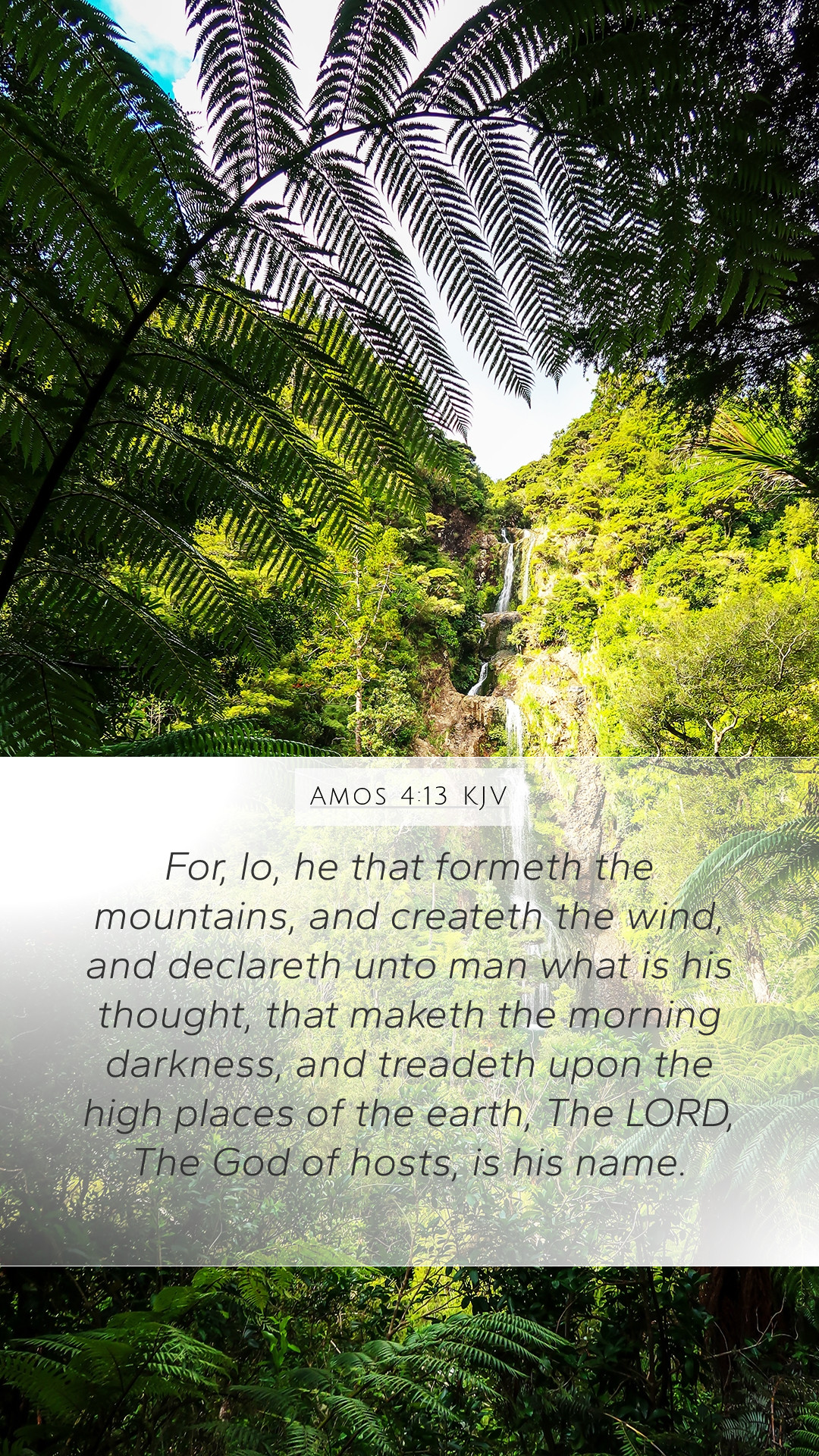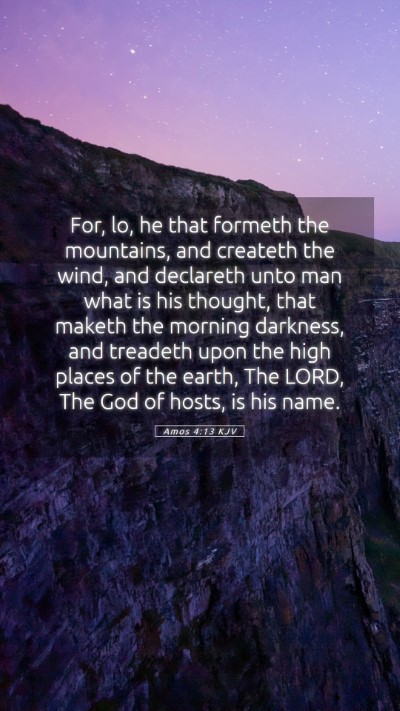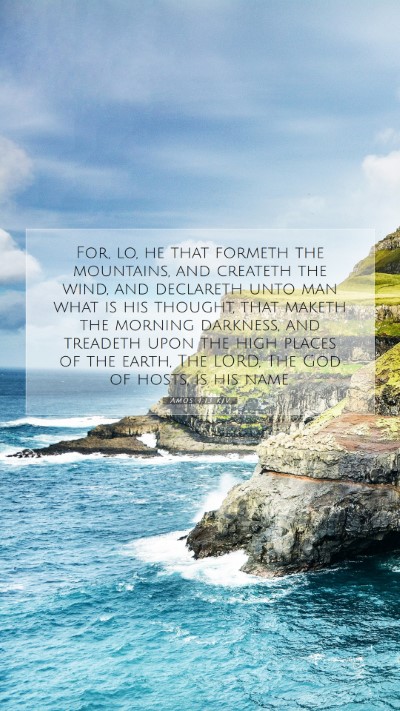Old Testament
Genesis Exodus Leviticus Numbers Deuteronomy Joshua Judges Ruth 1 Samuel 2 Samuel 1 Kings 2 Kings 1 Chronicles 2 Chronicles Ezra Nehemiah Esther Job Psalms Proverbs Ecclesiastes Song of Solomon Isaiah Jeremiah Lamentations Ezekiel Daniel Hosea Joel Amos Obadiah Jonah Micah Nahum Habakkuk Zephaniah Haggai Zechariah MalachiAmos 4:13 Meaning
What is the meaning of Amos 4:13?
For, lo, he that formeth the mountains, and createth the wind, and declareth unto man what is his thought, that maketh the morning darkness, and treadeth upon the high places of the earth, The LORD, The God of hosts, is his name.
Amos 4:13 Bible Verse Meaning
Understanding Amos 4:13 - Bible Verse Commentary
The book of Amos, a profound work among the Minor Prophets, contains messages of warning, judgment, and divine sovereignty. In Amos 4:13, we find a powerful declaration about God as the Creator and the implications of His greatness for humanity. Here, we'll explore the meaning of this Bible verse by weaving together insights from public domain commentaries, providing an in-depth Bible verse interpretation that sheds light on its significance.
Verse Text
Amos 4:13 (KJV): "For, lo, he that formeth the mountains, and createth the wind, and declareth unto man what is his thought, that maketh the morning darkness, and treadeth upon the high places of the earth, the Lord, the God of hosts, is his name."
Exegesis of Amos 4:13
This verse encapsulates a grand declaration of God's majesty and authority. As noted by Matthew Henry, this verse portrays God as the ultimate Creator who has formed both the physical world (the mountains and the wind) and the realm of human thought. Thus, this speaks to God's omnipotence and His role as the orchestrator of all creation. Albert Barnes emphasizes the declaration that God is capable of not only creating nature but also controlling the hearts and minds of men. This reflects the significance of God's sovereignty over both the world and personal lives.
Creation and Sovereignty
The imagery used in the verse evokes a sense of awe regarding God's creative power. Adam Clarke explicates that mountains symbolize strength and endurance while the wind represents the unseen forces of nature. God’s ability to create and govern these elements underscores His unparalleled position as the Lord. This understanding of God's sovereignty encourages believers to trust Him through challenging circumstances.
Divine Communication
The phrase "declareth unto man what is his thought" signifies God's intimate knowledge of human minds. Matthew Henry points out that this is a reminder of God’s omniscience – He knows our hearts and thoughts. This aspect of divine communication draws believers to a deeper relevance between humanity and the divine, signaling that understanding Scripture is not a one-way street; rather, it is a dialogue where God reveals truth to His people.
Darkness and Judgment
The reference to "making the morning darkness" further illustrates God’s power over creation and may also indicate impending judgment on those who ignore His covenant. Albert Barnes interprets this as a metaphor for spiritual darkness that overshadows those who turn away from God's guidance. Thus, this serves as a potent reminder for believers to live in alignment with God's ways to avoid the consequences of straying from His path.
Application to Daily Life
Understanding this verse is vital for practical application. It reminds us of God’s direct influence in our lives and challenges us to seek His guidance through prayer and study. The implications of God's power compel believers to live in obedience, knowing that He sees our hearts and knows our thoughts. Bible study tools such as commentaries, concordances, and study guides can deepen this understanding, allowing us to grasp the full context of God's messages.
Bible Study Insights
Engaging with Bible study groups can enhance your understanding of Scripture. Through group discussions and shared insights, members can explore the nuances of verses like Amos 4:13. In-depth Bible verse analysis often brings new perspectives, enriching the study experience.
Related Cross References
- Isaiah 45:12 - Indicates God's role as the Creator of all things.
- Job 38:1-4 - God questions Job about the creation, highlighting His omnipotence.
- Psalms 139:1-4 - Directly speaks to God's knowledge of our thoughts.
Conclusion
The profound truths presented in Amos 4:13 remind us of God's greatness and sovereignty. This verse serves as both a warning and a comfort, reminding believers of their relationship with the Creator and the importance of aligning with His purpose. As you delve deeper into your study of Scripture, let this verse guide you in recognizing the majesty of God and His desire for us to walk in His ways.


